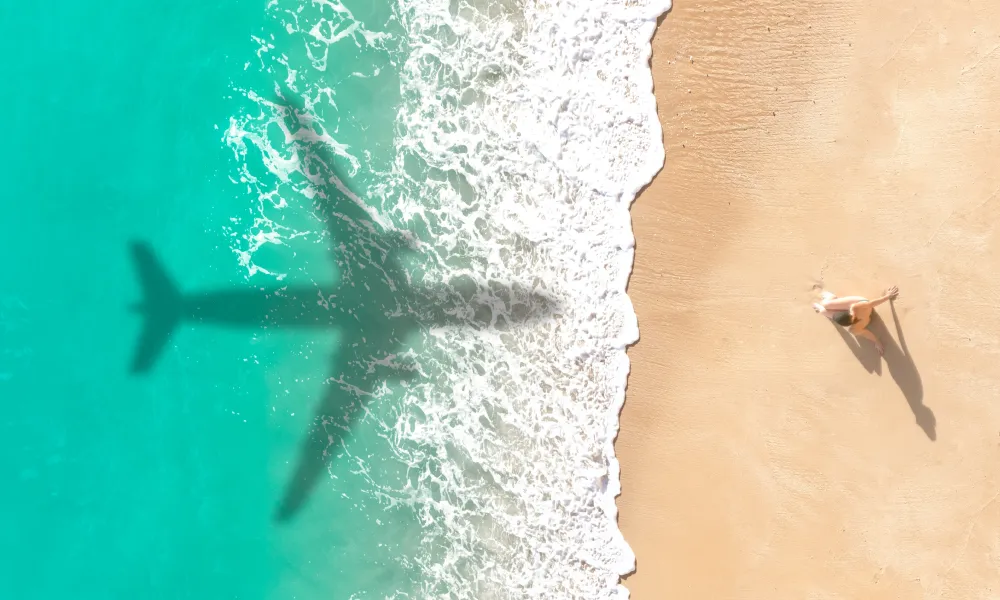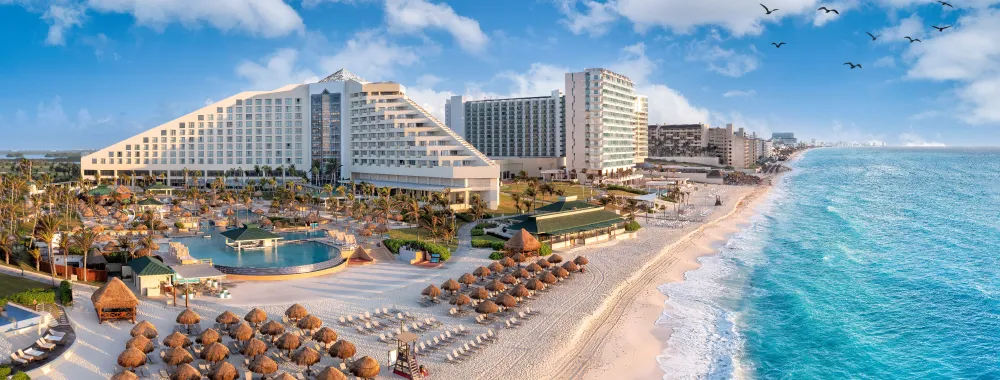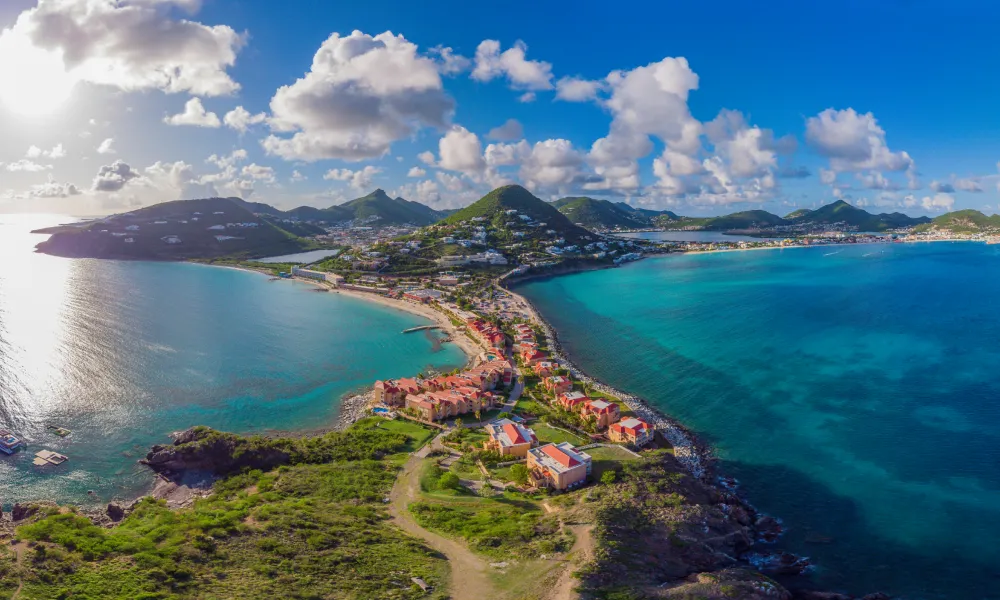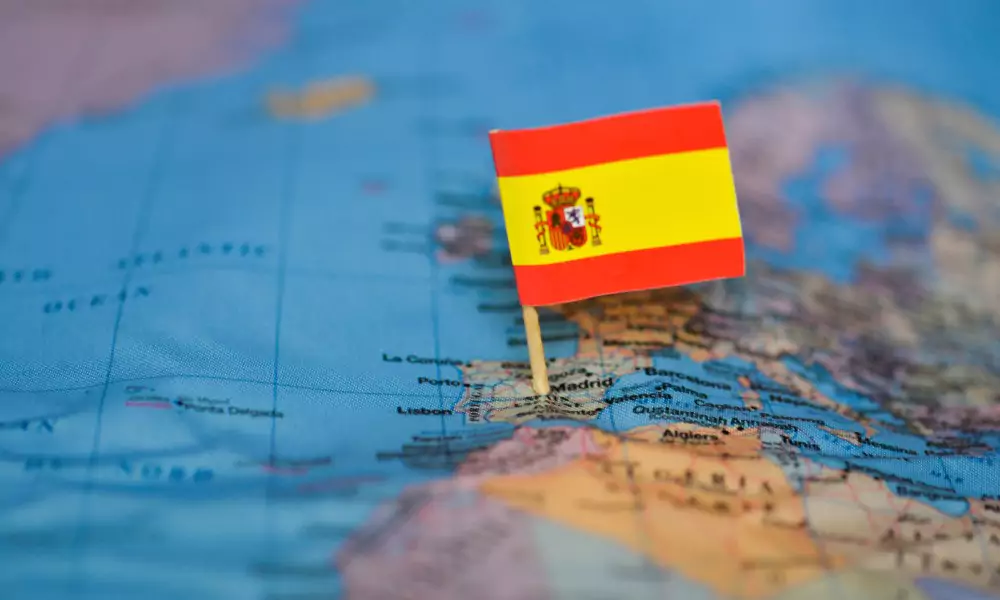Year upon year, the Caribbean Citizenship by Investment programs are recognised as being among the most advantageous for foreign investors, particularly those from the USA. Five island nations – Antigua & Barbuda; Grenada; Dominica; St Kitts & Nevis; and St Lucia – offer foreign citizens a passport in exchange for investments in their national economies, benefitting local communities.
These programs have been particularly popular with Chinese and Indian investors. However, in the last 5 – 10 years, Caribbean investment programs have also gained much popularity among US citizens.
Let’s explore the many benefits of second citizenship in Caribbean countries, particularly valued by high-income Americans in 2024, and look at why CBI (Citizenship by Investment) programs in this region are widely considered some of the best in the world.
A Quick Guide to the Caribbean Citizenship by Investment Programmes
The five Caribbean countries have roughly similar requirements and processes for obtaining citizenship:
- Investment amount – from $200,000;
- Investment options – non-refundable contributions to government funds or refundable investments through property purchase or bonds;
- Processing time for citizenship certificate – 4 to 10 months.
Applicants can add family members to the application, including spouse, children, and in some cases, siblings and parents of the investor.
Funds do not need to be risked before the application is approved. At the start of the process the government checks the documents and it is only upon their approval that the money is transferred. If the application is refused, no money is lost.
| Country | Non-refundable investments (charitable contribution) | Refundable investments | Return period |
| Antigua and Barbuda | $230,000 for 1 person $230,000 for a family of 4 $245,000 for a family of 5+ |
Real estate – from $300,000 | Minimum 5 years. Properties can be rented out |
| Grenada | $235,000 for 1 person $235,000 for a family of 4 +$25,000 for each additional financially dependent family member +$75,000 for including a sibling of the main applicant |
Government-approved tourist real estate projects – from $270,000 | Minimum 5 years |
| Dominica | $200,000 for 1 person $250,000 for a family of 4 +$25,000 for each additional financially dependent family member under 18 +$40,000 for each additional financially dependent family member over 18, e.g., grandparents |
Government-approved real estate projects – from $200,000 | Minimum 3 years |
| Saint Lucia | $240,000 for 1 person $240,000 for a family of 4 +$10,000 for each additional financially dependent family member under 18 +$20,000 for each additional financially dependent family member over 18 |
Investments in government-approved real estate projects – from $300,000 | Minimum 5 years |
| Saint Kitts and Nevis | $250,000 for 1 person $250,000 for a family of 4 +$25,000 for each additional financially dependent family member under 18 +$50,000 for each additional financially dependent family member over 18 |
Investments in commercial real estate – $325,000 | Minimum 7 years |
Legal Aspects of Dual Citizenship for Americans
For US citizens, obtaining dual citizenship through CBI programmes is entirely legal, while multiple citizenship is also not prohibited in the Caribbean. With a second passport, your options and opportunities expand, and travelling the world becomes much easier.
However, having obtained your new passport, you do retain all obligations to the United States; you still need to report income and pay taxes in the US. You can only avoid this by renouncing your US citizenship.
Global Mobility
Companies advising on citizenship by investment in the Caribbean have noted a surge of interest from the US since 2020. Travel bans during the pandemic eliminated the global mobility that the American passport previously provided and which was highly valued by Americans. With a second citizenship you are guaranteed entry into the country whose passport you hold.
With the end of the pandemic and Americans once again travelling visa-free to Europe and popular resorts, Caribbean passports have kept their popularity. Currently they are chosen by Americans seeking a safe haven in case of new crises and planning to transfer assets to a jurisdiction with a more favourable tax regime.
In addition, holding a Caribbean passport opens up access to an expanded list of countries you can visit without a visa
- A Grenada passport allows stays in mainland China for up to 30 days per six months.
- With a Dominica passport, you can visit China and Taiwan.
- Citizenship of Antigua and Barbuda opens access to Macau and Venezuela.
- St. Kitts and Nevis citizenship gives you access to Taiwan.
- A St. Lucia passport opens access to Venezuela and Taiwan.
Enhancing global mobility with a second Caribbean passport is an option that appeals not only to US citizens who love to travel. Do you perhaps have business connections with companies from China, Taiwan, Hong Kong? Choose an investment citizenship programme in a country that provides visa-free entry to these states. Participating in a CBI program will allow you to worry less about developments in relations between China and the US, and tensions in the Taiwan Strait. You’ll retain the possibility of visa-free entry to the country where your business interests are concentrated, regardless of political or social conditions worldwide.
What if you’re not a fan of travel and prefer to save your money towards retirement or college for your children? Caribbean CBI programmes can still offer great benefits. You’ll be able to reduce taxes and living expenses and have the opportunity to retire earlier with a great standard of living.
Relocation Opportunity
If you’re not tied to an office, why settle for breathing the dirty air of a metropolis or enduring traffic jams and smog? You can move closer to the azure ocean and live with a view of the waves, occasionally flying to the US to keep close ties to family and friends or your business interests. Your new neighbours could be Robert De Niro, Wayne Rooney or Leonardo DiCaprio. Although all five Caribbean countries offer US citizens visa-free entry, you do need to participate in CBI for long-term relocation. A second passport allows you not just to come on holiday but to live by the warm sea for as long as you like. A new lifestyle awaits!
Reduced Living Expenses
Citizenship by investment in the Caribbean is not solely restricted to ultra-wealthy Americans. People with regular incomes are equally attracted by the opportunity to maintain their usual lifestyle and quality of life in the Caribbean islands while spending less.
According to Numbeo, the average person needs $750 to $1000 per month, excluding housing costs. The cost of living in the Caribbean is, on average 30-40% lower than in major US cities. For example, According to some calculations, life in Castries, St. Lucia, is almost 80% cheaper than in Boston. Renting inexpensive housing in the city can be 1.5-2 times cheaper than in Miami or Chicago – from $750. A 6-bedroom villa on the coast will cost from $4,000 per month. Utilities in apartments – from $290.
You won’t need to worry about taxes, either. Even as a resident of one of the islands, you won’t increase your expenses. Caribbean governments (except for Dominica) do not tax income earned abroad or funds transferred to the country. Inheritance, gifts and capital gains are also not taxed. Property ownership fees will range from 0.3 to 1.25% of its value.
Do keep in mind that even if you only relocate to the Caribbean for a couple of years, you do retain the obligation to pay taxes in your home country. Tax planning for Americans with dual citizenship should therefore include annual US tax returns and reporting of all Caribbean and other global income.
To reduce expenses and protect assets, you could decide to obtain Caribbean citizenship by investment and renounce your American citizenship. This decision has its pros and cons, so it should be carefully considered. Even if you give up your US passport, you can still:
- Travel freely around the world – Caribbean passports provide visa-free entry to 140-160 countries, including Europe;
- Visit the US and Canada on a tourist visa, which can be obtained for 10 years at a time.
Renouncing US citizenship would deprive you of the right to state protection and support abroad and to have permanent residence in the States, but could help optimise your tax burden. The decision to renounce should be made carefully, thoroughly weighing up all the pros and cons. On the islands, your taxes will go towards developing green energy, education systems and infrastructure rather than solving other countries’ problems. Rest assured that you don’t have to take such an important step right away or ever. You could always get a second passport by investment, and decide to renounce the first one after a few years if you consider it more beneficial for you.
Safety Guarantees
Another surge of interest in Caribbean citizenship by investment programmes was caused by the overturning of Roe v. Wade and the storming of the Capitol in the US. The risk of losing civil rights and freedoms, plus security issues, the government’s inability to cope with shootings, racial discrimination, and soaring health insurance prices have made many Americans consider finding a backup airfield for their family. Caribbean countries are about only 5 hours direct flight from New York and just over 3.5 hours from Miami.
Can the Caribbean islands be a safe haven for a family? It depends which ones. Jamaica regularly makes the list of the most dangerous places on the planet, while the State Department recently issued a statement about the dangers of travelling to the Bahamas. On these paradise islands, tourists are advised not to leave the confines of hotels and entertainment zones.
However, the Big Caribbean Five have a much better reputation. The US State Department assigned all of these countries the maximum security level – 1, which allows travel without restrictions. The countries also received high positions in the rankings for the safest places for women travelling alone. This is an indicator of low crime rates and good law enforcement, as well as the lawfulness and stability of local communities.
If you’re used to the frenetic pace and the multiple business opportunities of New York or California, the tropical paradise of the Caribbean islands may seem relatively quiet and frozen in time. But of course a backup airfield should be a quiet place, far from foreign policy crises and various internal and international upheavals.
English is spoken on all Caribbean islands and many elements of the education system, healthcare, and state structure are taken from the British model. This is an important advantage of a second Caribbean passport for American families seeking a quiet haven as it’s far easier to adapt in a country whose language you already understand.
Asset Protection
The Caribbean islands can be a secure place not only for you but also for your capital. Naturally, small island states can’t be regarded as world financial centres. However, its economic and political stability makes the Caribbean popular with investors. The main areas for investment are residential real estate and tourist facilities, seaports and airports. Participants in the “golden passport” program can simultaneously obtain a second passport and take advantage of Caribbean investment opportunities. Among the options with return on investment, investors are offered the choice of:
- Purchasing a property that can be rented out immediately after acquisition;
- Investing in government-approved tourist real estate – after only a few years, they can be sold to a management company or other interested party;
- Purchasing government bonds – interest-free, but with a guaranteed return of the full amount after 5 years;
- Buying a luxury villa that will make an excellent permanent or holiday home for your family.
All properties purchased under the “golden passport” program can be sold after 3-7 years, depending on the rules of the country and nothing prevents you from making additional real estate investments if you wish to.
- Price growth, according to local real estate agencies, was 5%-15% in 2023.
- Rental yield was from 3.5%- 5%.
Returns are higher on those islands that are especially popular with tourists. For this reason, Antigua & Barbuda and St. Lucia are often named as the best Caribbean countries for American real estate investors. But, if choosing a beachfront villa in a popular location, be prepared to pay several million dollars. The high cost per square metre is due to land scarcity, as well as the difficulty of delivering materials to isolated islands. Local authorities rightly care about preserving the pristine nature that attracts tourists, which also complicates developers’ work.
If you don’t plan to transfer assets abroad and don’t want to pay property taxes, our advice is to choose options with non-refundable charitable contributions when participating in the program. All Caribbean countries offer the opportunity to finance one of the state funds dealing with the development of social projects, local infrastructure and educational institutions when investors apply to obtain a “golden passport”. The size of the non-refundable contribution depends on the country and family size, but on average, ranges from $200,000 to $250,000.
When comparing citizenship programmes of Caribbean countries, be aware, not only of the maximum investment amount required, but also of the mandatory administrative fees.
Contact Astons to find out which option is best for a large family and which for individual participation in a CBI program.
Privileges You Can Gift to Your Children
A second citizenship is one of the best inheritances you could leave to your children and grandchildren. They will receive all the advantages described above, at birth. The Caribbean countries offer the opportunity to give your children global mobility and a safe haven in case of crises. When applying for a second passport, you can add an opposite-sex spouse, as well as all biological and adopted children up to 25-30 years old. Children under 18 can be added without additional conditions. Older children are eligible if you support them, they are not married and are studying.
Children born after you obtain the new passport may receive the same citizenship by right of blood or for additional investments, depending on the country.
How can you apply for second citizenship in Caribbean countries and get maximum future opportunities with minimum expenses? Astons’ experts will answer these questions. We will assess your chances of successfully obtaining second citizenship in the Caribbean and accompany you at all stages of the process. Get in touch!


















